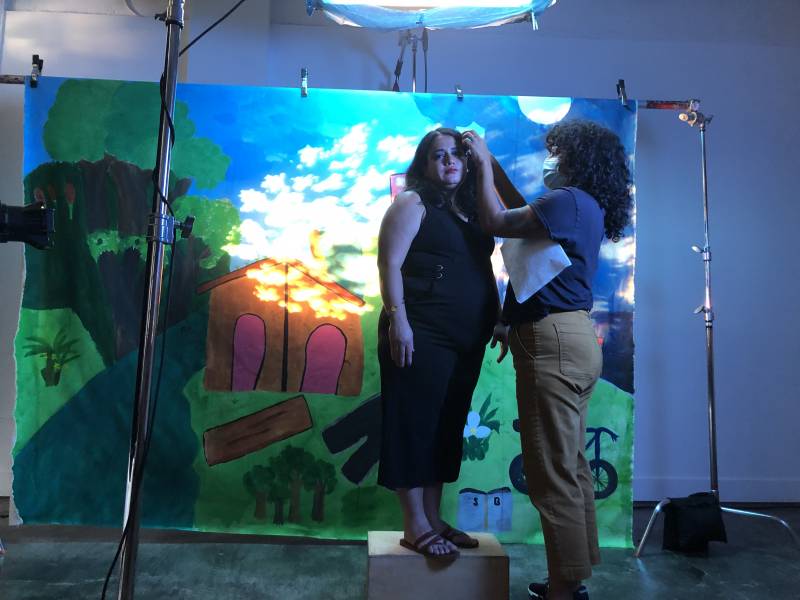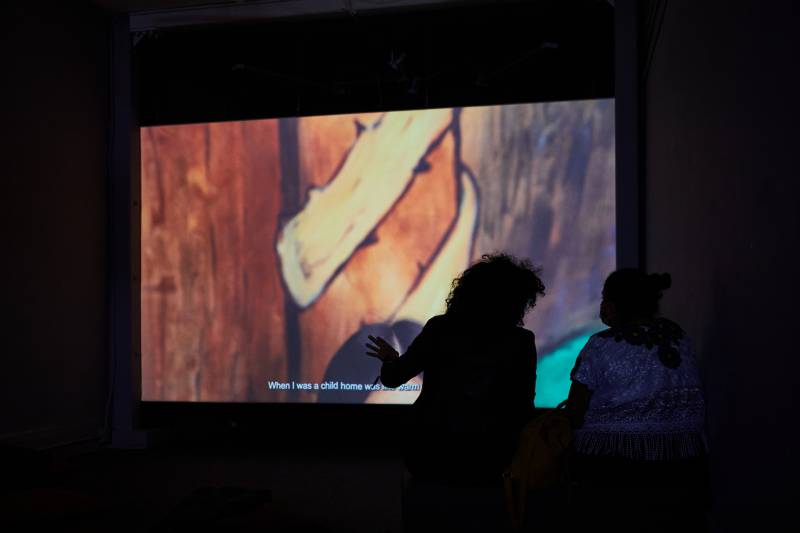Alejandra hadn’t planned on leaving Guatemala, but she didn’t really have a choice.
She had moved to the capital from her rural hometown to get proper schooling for her son, who is deaf. But living in Guatemala City was too expensive as a single mom, so she left and put her own dream of studying law on hold. More hardships followed when a fishing company began dumping waste into the river that sustained her community. Alejandra campaigned to put pressure on the local government to regulate the pollution, but the powerful company had the politicians in its pocket. She knew she was in danger, so she embarked on an arduous journey that took her through Mexico, into I.C.E. custody and, eventually, to the Bay Area, where she’s currently studying and trying to establish a better life for herself and her family.
Alejandra’s typically private about the details of how she got here, but she did something unexpected and responded to a call-out from Oakland artist Sofía Córdova, who reached out to local nonprofits to find refugee women willing to tell their stories in her new film.
“I looked at it as an opportunity to do something for myself, because I’m a mom of three kids and that takes up most of my time,” Alejandra tells me in Spanish. “This was something just for me. I was able to express my pain, my story, and talk about the things I remember fondly from my hometown. And also what made me immigrate here.”
Alejandra is one of the six women featured in Córdova’s new video installation, dawn_chorusiii: the fruit they don’t have here, screening at 41 Ross, the Chinese Culture Center’s art gallery in San Francisco Chinatown.




